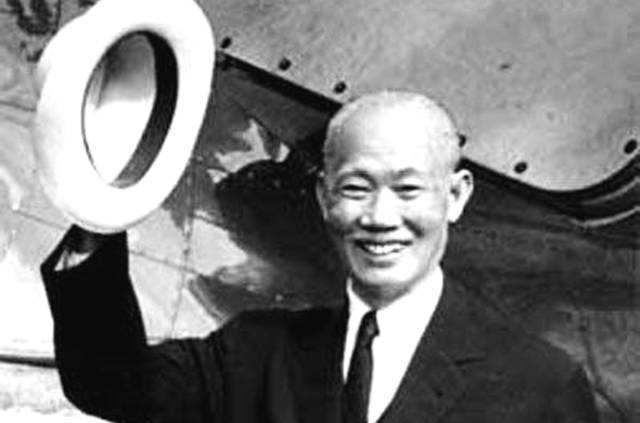The Taiwan issue has not been perfectly resolved until now, but in fact, in the early 1960s, the policy toward the Taiwan issue was already the direction of peaceful reunification, when Chairman Mao said that as long as Taiwan is willing to return to the embrace of the motherland, all problems can be studied and resolved in accordance with the opinions of Chiang Kai-shek and Chen Cheng.

Therefore, in 1963, Zhou Enlai asked the peace general Zhang Zhizhong to write a handwritten letter to Chen Cheng, conveying Chairman Mao's policy toward Taiwan at that time, hoping that Chen Cheng would proceed from the national righteousness of national reunification and promote the development of the two sides of the strait in the direction of peaceful reunification. Unfortunately, Chen Cheng was already suffering from liver cancer at that time. No one knows what Chen Cheng, who was in pain, thought when he saw this letter.
On March 3, 1965, Chen Cheng returned to the light and woke up from his coma. He looked at the family members gathered around him and signaled everyone to go out first, leaving only the eldest son, Chen Lu'an. Everyone understood that this was Chen Cheng's will. Chen Lu'an rushed to his father's side, took out a pen and paper, and prepared to record his father's will. Chen Cheng stared blankly at the ceiling, and after a brief silence, he uttered the following three sentences:
I. I hope that the comrades will complete the great cause of the National Revolution with one heart and one mind and under the leadership of the president;
Second, do not be passive, regardless of whether there is a distinction between east and west, south, north and south, men, women, old and young, and the military and the people of the whole country share this suffering;
Third, the Party exists, strives for internal unity, and has a promising future.
Two days later, Chen Cheng passed away at the age of 67. After Chen Cheng's death, everyone was naturally most concerned about his will. Some people in the Kuomintang knew the weight of Chen Cheng's words, so they specifically sought out Chen Cheng's wife, Tan Xiang, and wanted to revise Chen Cheng's last words to achieve certain political goals. But Chen Cheng's wife, Tan Xiang, firmly disagreed.
This matter was reported to Chiang Kai-shek, who was silent for a long time after knowing this, whether to respect the deceased or to use Chen Cheng's death as a tool for political propaganda, and there was also a fierce ideological struggle in his mind, and finally Chiang Kai-shek decided that Chen Cheng's will should be published in the original text.
Chen Cheng's funeral specifications are very high, Chiang Kai-shek personally came to the scene to lay a wreath, and the plaque hanging in the spiritual hall was also written by Chiang Kai-shek himself, on which were written the four characters of "Essence of the Party and State". The funeral was so mournful that it could be said to have never been done before.
In the summer of the same year, Li Zongren came to the mainland, Zhou Enlai personally went to Shanghai to greet him, the two talked about Chen Cheng's death, Zhou Enlai spoke highly of Chen Cheng, saying that he was a patriotic man, and had always been firmly opposed to the United States creating "two Chinas", but unfortunately his health was not good.